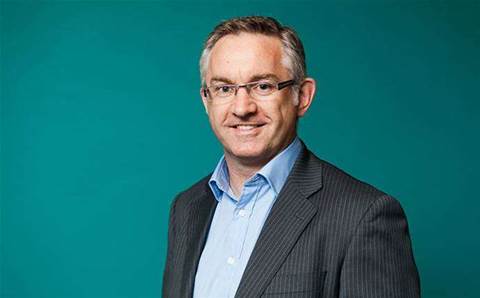Telstra has put partner accreditation tiers in place for the first time, the company revealed on the opening day of CRN Pipeline.
Following CRN's report in November that the telco had launched a "root and branch" review of its partner program, director of business & enterprise specialist partners Keith Masterton used his presentation at CRN Pipeline on Thursday to reveal that accredited, silver, gold and platinum levels were effective as of Wednesday 6 April.
Prior to the reform, Telstra's partner program did not feature any tiering.
"Partners who contribute more to us, we will contribute more to them. You give and you get," he said at the summit in Sydney. "It's a game changer. A lot of our value proposition to the channel, customers and internal sales teams will hinge on that moving forward."
Tiering of existing partners is currently taking place, with the process scheduled to complete by 1 July.
"Our expectation is that there will be in the order of 15 to 20 partners in platinum, and perhaps 20 to 30 in gold," Masterton told CRN. "Gold is the highest level of capability in a particular speciality. Platinum measures a little of breadth within a domain of capability."
Partner remuneration reforms were also rolled out on 1 February. Masterton said that those changes were executed for many of the reasons that have been discussed at the CRN Pipeline conference, where many speakers have centred on how to make a successful transition to annuity revenues and managed services.
"It's about transformation of the channel… It's about skill sets that we need in the channel – services around applications and cloud," he said. "It's about moving the lever from left to right, where left is more traditional [telecommunications] services and right is the emerging and strategic product set."
The new remuneration incentives address the challenge that revenue from cloud and networking services is not as lucrative upfront as conventional projects: "There's a cashflow transition in making that movement."
Channel reforms have also impacted Telstra's own staff. Last month, "structural changes" took place within the telco's partner team to "simplify" its channel engagement, including removing "pockets of duplication".
"If we don't transform ourselves, we're not going to transform the channel, right?" said Masterton. "We're continually re-tooling our own capability to ensure we've got the right support structure in place for our channel."
Masterton said that the Telstra partner advisory council recently replaced about half of its seats in a bi-annual refresh, with solutions provider partners hopping on-board to balance out the traditional telco dealer partners.
"All the new [council members] are essentially new to Telstra in the last year or two," he said. "So we're really trying to learn from those partners. We've now got a nice mixture of the traditional partners and the new partners."
Professional services are next on the reform agenda for the Telstra channel team, according to Masterton, with managed services to follow in financial year 2017.




.png&h=142&w=230&c=1&s=1)

_(27).jpg&h=142&w=230&c=1&s=1)






.jpg&w=100&c=1&s=0)











